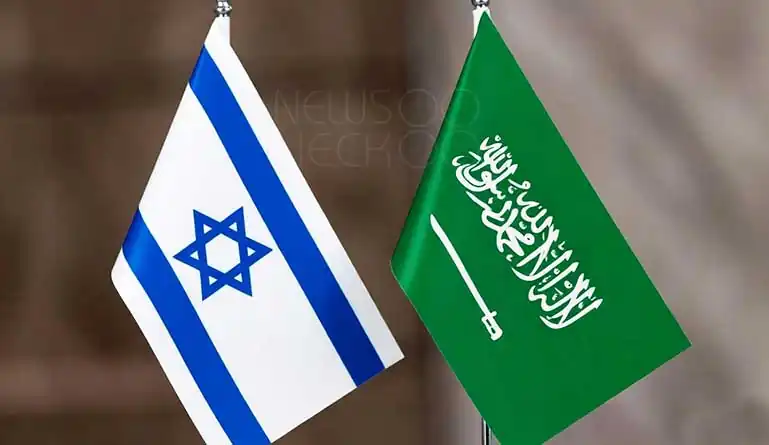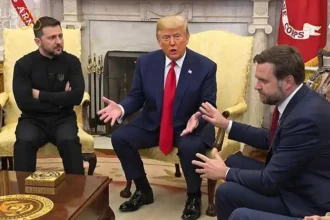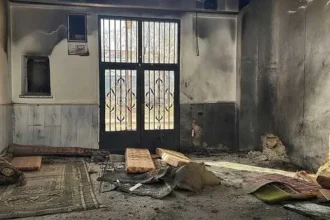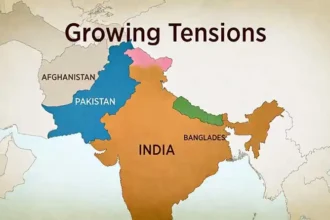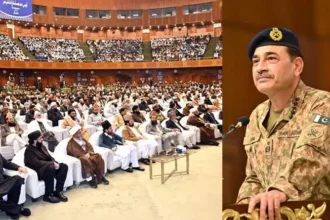The Deal That Could Reshape the Middle East—But There’s One Major Problem
When two of the world’s most powerful men sit down next week in Washington, everyone will be watching to see if they can pull off what many believe is impossible. President Donald Trump wants to make history by convincing Saudi Arabia to become friends with Israel. But behind the closed doors of diplomacy, the Saudi message is crystal clear: not without a serious promise first.
A Meeting Years in the Making
On November eighteenth, Saudi Crown Prince Mohammed bin Salman will walk into the White House for a conversation that could change the face of Middle Eastern politics forever. This will be his first visit to Washington in more than six years, and the weight of expectations is enormous.
The young Saudi leader, often called MbS by those who follow international affairs, has stayed away from the American capital since two thousand eighteen. That was the year a terrible tragedy shocked the world—the killing of Jamal Khashoggi, a journalist who wrote for the Washington Post newspaper and had criticized the Saudi government. Khashoggi was murdered inside the Saudi consulate building in Istanbul, Turkey, and the incident caused anger and sadness across the globe. MbS has always said he was not directly involved in what happened.
Now, years later, the Crown Prince is returning. And Trump believes this visit could produce something remarkable—a peace agreement between Saudi Arabia and Israel, two countries that have been enemies for generations.
Trump’s Big Dream
The American president has been talking excitedly about this possibility for weeks. Last month, Trump told reporters he hoped Saudi Arabia would “very soon” join a special group of Muslim countries that have already made peace with Israel. This group was created through something called the Abraham Accords, which Trump helped negotiate during his previous time as president back in two thousand twenty.
The Abraham Accords were considered a huge achievement. The United Arab Emirates became the first Gulf nation to officially recognize Israel and establish normal diplomatic relations. Bahrain and Morocco quickly followed. Suddenly, countries that had refused to even acknowledge Israel’s existence were opening embassies, signing trade deals, and planning tourist exchanges.
Trump sees expanding these accords as one of his top foreign policy goals. Getting Saudi Arabia—the most important and influential country in the Arab world—to join would be the ultimate prize. It would fundamentally reshape the political and security situation across the entire Middle East region and would significantly strengthen American influence there.
You Might Like it: Saudi Arabia’s $1 Trillion AI Investment Plan
But Saudi Arabia Has Different Ideas
However, despite Trump’s optimistic public statements, people who understand what is really happening behind the scenes tell a very different story.
Two sources with deep knowledge of Gulf politics recently revealed to Reuters news agency that Saudi Arabia has been sending private messages to Washington through diplomatic channels. The message is simple but firm: Saudi Arabia’s position has not changed at all.
The kingdom will only agree to normalize ties with Israel under one specific condition—if there is a clear and believable plan that leads to the creation of an independent Palestinian state.
This is not a small demand. This is the heart of one of the world’s longest and most complicated conflicts. For decades, Palestinians have sought their own country in territories that Israel currently controls or has influence over. Negotiations have failed repeatedly. Violence has erupted countless times. And the dream of a Palestinian state seems further away than ever to many observers.
Why This Matters So Much
To understand why Saudi Arabia is taking such a firm stance, you need to understand what the Palestinian issue means across the Arab and Muslim world.
For generations, Arab leaders have said they stand with the Palestinian people in their struggle for independence and dignity. Supporting Palestinian statehood is not just politics—it carries deep emotional and religious significance for hundreds of millions of people. Jerusalem, a city both Israelis and Palestinians claim as their capital, contains sites sacred to Muslims, Jews, and Christians alike.
Saudi Arabia, as the birthplace of Islam and home to the religion’s two holiest cities, Mecca and Medina, carries special responsibility in the eyes of Muslims worldwide. The Saudi royal family has long positioned itself as guardian and protector of Islamic interests.
If MbS were to suddenly announce friendship with Israel without securing something meaningful for Palestinians first, the backlash could be severe—not just internationally, but potentially within his own country and the broader region.
Avoiding Diplomatic Disasters
According to the Gulf sources who spoke to Reuters, Saudi officials are being extremely careful about how they handle this situation. They want to make absolutely certain that their position and America’s position are properly aligned before any public announcements are made.
The goal is to avoid what diplomats call “missteps”—embarrassing moments where leaders say contradictory things or where expectations are raised only to be crushed. The Saudis specifically want to prevent any confusion during or after the November eighteenth White House meeting.
One source emphasized that the intention is to ensure there are no misunderstandings about where Saudi Arabia stands.
Jonathan Panikoff, who used to work as a deputy national intelligence officer focused on Middle Eastern affairs for the United States government, agrees with this assessment. He now works at the Atlantic Council, a respected think tank in Washington that studies international relations.
Panikoff explained that MbS “is not likely to entertain any possible formalizing of ties in the near future without at least a credible pathway to a Palestinian state.”
In fact, Panikoff believes MbS will use his relationship and influence with Trump to push for something even more specific—he will ask the American president to make “more explicit and vocal” statements supporting the creation of a truly independent Palestinian state with full sovereignty.
Also read: Gaza Ceasefire Holds as Leaders Debate the Future:
The Challenge Ahead
This sets up a fascinating dynamic for next week’s meeting. Trump wants something from MbS. But MbS wants something from Trump first. Both men are known for being tough negotiators who rarely back down.
The establishment of diplomatic relations between Israel and Saudi Arabia really would shake up everything. It could create new security partnerships, open up massive economic opportunities, change the balance of power with Iran, and potentially isolate extremist groups that oppose peace.
But getting there requires solving problems that have stumped world leaders for seventy years.
Can Trump convince Israel’s government to commit to a realistic plan for Palestinian statehood? Can MbS convince his own people and the wider Arab world that any agreement serves their interests? Can both sides trust each other enough to take such enormous risks?
These are the questions hanging over Washington as November eighteenth approaches. Everyone knows what Trump hopes will happen. But what actually happens when these two powerful leaders sit down together may turn out to be something completely different—a reminder that in Middle Eastern politics, hope and reality often live in separate worlds.
Author: Yasir Khan
Date: 09 Nov, 2025
For More Updates, Visit Newsneck


